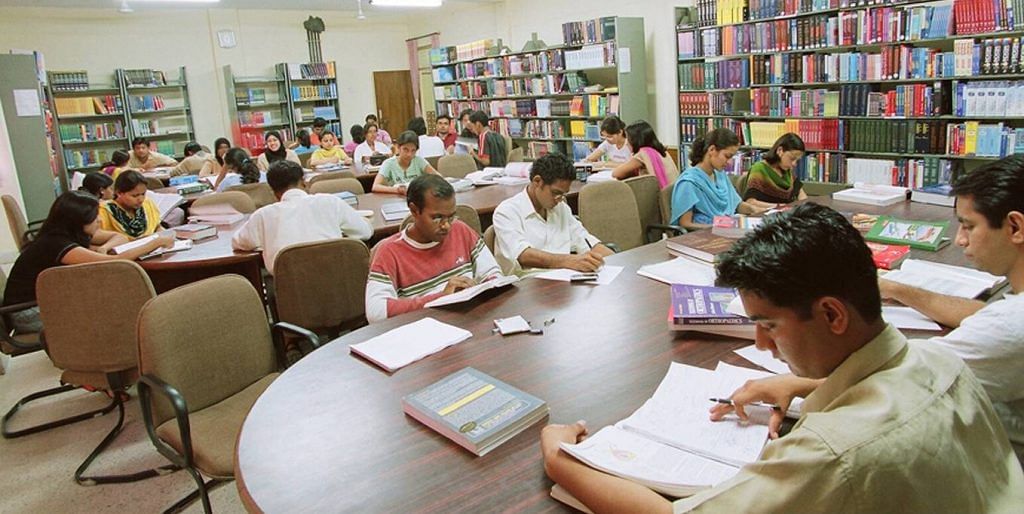I am an electrical engineer and last week I was horrified at the outrage that people at IIT Kanpur do not know about Faiz Ahmed Faiz. (In case you don’t know either and are too embarrassed to ask — Faiz was a Pakistani Marxist poet.)
Faiz? Faiz who? What has he got to do with improving the grade point average, landing a job at Google, securing funding for a startup or getting full scholarship for grad school at a top US university? Since no professor, interviewer or grad school selection committee member cares much about Faiz (even in the off chance that they know about him), the relevance of Faiz to an engineering student is zero. Since some of these students go on to become faculty, teaching the next generation of students who have the same objective functions, few professors know about Faiz either. Why are we surprised that our engineering colleges are unFaized?
It’s not just the Indian Institutes of Technology (IITs). It’s not only our engineering colleges. Medical, science, business, and commerce colleges likely suffer from the same Faiz ignorance. Sure there might be the odd physiotherapist here or an unnecessarily better-read physics student there, but, by and large, we should not be surprised if students and faculties at our top colleges do not know about Faiz. To be fair, students at professional colleges are not totally disinterested in arts and culture. Many watch Bollywood and Netflix shows. They follow cricket and football. They also read, as the sales figures of books of Chetan Bhagat and Amish Tripathi attest.
Also read: The suspicion over Aadhaar shows why IIT engineers don’t have solutions to India’s ills
Preparation begins early
The education process of aspirational middle-class children starts early, when their parents enrol them in tuitions and coaching classes to prepare for board exams and JEE/NEET. School learning app Byju’s now has a separate application for kindergarten kids. As everyone knows, the competition is hard and you have to prepare for these entrance exams. Preparation requires time. Would you let your teenager’s time be wasted reading Urdu poetry or ask him to learn how to make the right-hand-side equal left-hand-side? Language and social studies are unavoidable irritations that you need to bear, before calculating how an electron moving in the z-direction moves in fluctuating magnetic field on the x-y plane. Can Faiz help solve calculus problems? If he can’t, he’s not too useful, is he?
Indians have been like this for at least three decades, during which engineers, doctors, accountants, and MBAs have acquired social status and economic power. So, most of our elite have had little exposure to humanities and social sciences. We can’t blame ourselves too much for this. After the 1991 economic reforms, we suddenly had access to career opportunities that could lift us out of poverty. Getting into a good professional institute was the gateway to a rewarding global career. If that meant preparing for JEE/NEET at the cost of ignoring other subjects, then that was the rational thing to do. It is still the rational option for a lot of families who couldn’t get on the bandwagon earlier: getting your kid into IIT, NIT or a good engineering college is the ticket to better prospects. That it is partly also a lottery ticket is all the more reason to encourage your child to prepare harder. Can Faiz help make the cutoff? If he can’t, what use is he?
So, we have ended up in a situation where the most intelligent people of two generations have good degrees, but lack good education. This was initially not a problem while we were still writing software codes and climbing corporate ladders. But now we need a lot of leaders in higher management, we need educated people in the civil services, people with “officer-like qualities” in the armed forces, and in all these cases, we are short of them. This shortage of broadly educated people will be felt even more acutely in the future, in a world where machines do the drudgery and humans exercise judgement. A solid foundation in science is necessary, but not sufficient. A young person today must be familiar with the arts and the social sciences to be equipped to succeed in the 21st century. That’s why the world’s best universities – including some IITs – are putting liberal arts into their science and technology courses.
Also read: Manipuris in Mysore Taco Bell: Why English and philosophy are key to India’s jobs crisis
Learning through Faiz
Contemporary education in any field is incomplete without economics and philosophy. As I wrote in an earlier column, “philosophy allows us to navigate in a world where technology has advanced to the frontiers of fundamental human capabilities. Science, engineering and mathematics will allow us to develop technologies like artificial intelligence and gene editing, but it is philosophy that will help us think how and how not to put them to use.
“Unless philosophy is understood by a wider section of the (Indian) population, important questions around what it is to be human, what is ‘ethical’, what should be permitted and what forbidden, and why, will be appropriated by religious groups and other vested interests. Clearly, a secular democracy cannot allow its ethical and moral values to be determined by religious dogma or preferences of interest groups.”
The upshot is that just like studying science was necessary for career success in the 1990s, learning social sciences and humanities is the requirement now — both for selfish and altruistic reasons.
Given the privations of our socialist past, we shouldn’t be too harsh on ourselves for seeking a better future through professional education. But it’s about time we realised that we can no longer afford to ignore Faiz.
Can Faiz help with preparing for the 21st century? I think he can. Let’s see.
The author is the director of the Takshashila Institution, an independent centre for research and education in public policy. Views are personal.
